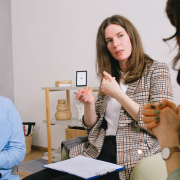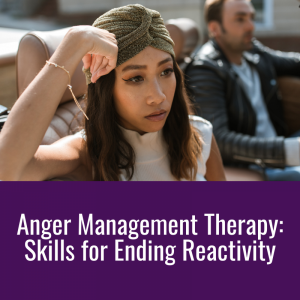Kink Friendly Therapist Near Me 🌟
Kink Friendly Therapist Near Me 🌟
Couples’ sex education is an important part of making a relationship happier and closer, and kink-friendly therapist near me offer it.
This post will teach you everything you need to know about choosing a kink-friendly therapist. We will discuss what to look for in a therapist, where to find one, and typical questions concerning kink-friendly treatment.
Why does being kink-friendly matter?
By getting rid of sex taboos, myths, and misconceptions, couples are given the tools they need to talk about their sexual needs and limits in a healthy way.
Couples can learn about a variety of sexual positions and techniques, sexual health, and kink-friendly ideas for improving their sensations in the bedroom. Similarly, we can help you deal with common sexual problems like low desire, erectile dysfunction, or performance anxiety.
Finding a therapist that understands and accepts kink and alternative lifestyles might be difficult. Fortunately, there are numerous kink-friendly therapists who understand kink demands.
When looking for couples’ sex education, people may want a place where they won’t be judged and where they can ask questions and get accurate, useful information.
They might also look for a kink-friendly therapist near me who is knowledgeable, experienced, and able to help them improve their sexual relationship. Even if this sexologist isn’t located near you, you can set up texting, emailing, or virtual sessions.
Shame, embarrassment, or the idea that sexuality is natural and doesn’t need to be taught could be getting in the way of their sex education.
It’s critical to keep in mind that there is no one-size-fits-all approach to sex education and that every couple can gain from learning more about their sexual chemistry.
Why Pick a Kink-Friendly Therapist Near Me?
A therapist who is open to kink can give you a safe place to talk about any problems or worries you have that are related to kink. Also, a therapist near me who is open to kink can help you deal with the problems that come with living an alternative lifestyle in a society that is judgmental and stigmatizing.
A kink-friendly therapist can help you explore and understand your sexual desire in a healthy and consensual way and address any negative sentiments or shame you may have about your wants.
Where Can I Find a Kink-Friendly Therapist Near Me?
Look through online directories like the Kink Conscious Professionals Directory. Ask places that seem trustworthy. Ask for referrals from the community and attend kink-related events or classes. Similarly, see if there is a National Coalition of Sexual Freedom provider near where you are located.
FAQs
What qualities should I seek in a kink-friendly therapist?
Find a kink-savvy, non-judgmental therapist. Ask about their work with kinksters and how they handle sexuality and intimacy in their practice.
What can I anticipate from kink-friendly therapy?
You may anticipate the same level of care and professionalism as in any treatment setting. However, if you have problems because of your kink, a therapist who is “kink-friendly” will be more understanding and helpful, and they may even use your kink as part of your treatment if it makes sense.
I imagine if you are coming to us, you are looking for something new and exciting to spice up your sexual experiences and add variety to your bedroom activities.
In life coaching with us, we will offer a mix of visual and written content for you, so you may be asked to watch instructional videos, browse online resources and podcasts, and read books that offer ideas.
Also, some of our sex therapy videos offer demonstrations so you can do hands-on learning at home!
Sensual ideas are tough to explore with other couples around you, so our sex help therapy video helps by challenging couples’ assumptions and pushing you to the edge of your growth zone!
Our content is inclusive and diverse, showcasing a range of perspectives and experiences. If you are over 18 and interested, our webinars are engaging, educational, and inspiring.
By providing high-quality, diverse content that meets these needs, couples sex education providers can attract and retain sensuality explorers as loyal and excited customers.
Kinky Sex: How to Get Started
Kinky Sex 2.0: Escape Boredom in the Bedroom
About Life Coaching and Therapy
Life Coaching and Therapy (LCAT) is a therapy and coaching practice that transforms our clients lives through our flexible. Multi-technique approach and pleasure-skills training provided by systematically-trained and licensed therapists!
 Get to know our founder and owner, Amanda Pasciucco, (a.k.a. The Sex Healer) PhD, Licensed Marriage and Family Therapist (LMFT), and an AASECT Certified Sex Therapist (CST) that has developed innovative therapy programs and therapy videos that get results.
Get to know our founder and owner, Amanda Pasciucco, (a.k.a. The Sex Healer) PhD, Licensed Marriage and Family Therapist (LMFT), and an AASECT Certified Sex Therapist (CST) that has developed innovative therapy programs and therapy videos that get results.
Our team of compassionate, licensed therapists and certified sex therapists help all clients who visit us for a variety of personal, relationship, intimacy and sex problems.
LCAT provides on-site appointments, as well as video chat and text therapy programs.
Learn more about how LCAT can help improve your life at What We Do.
































